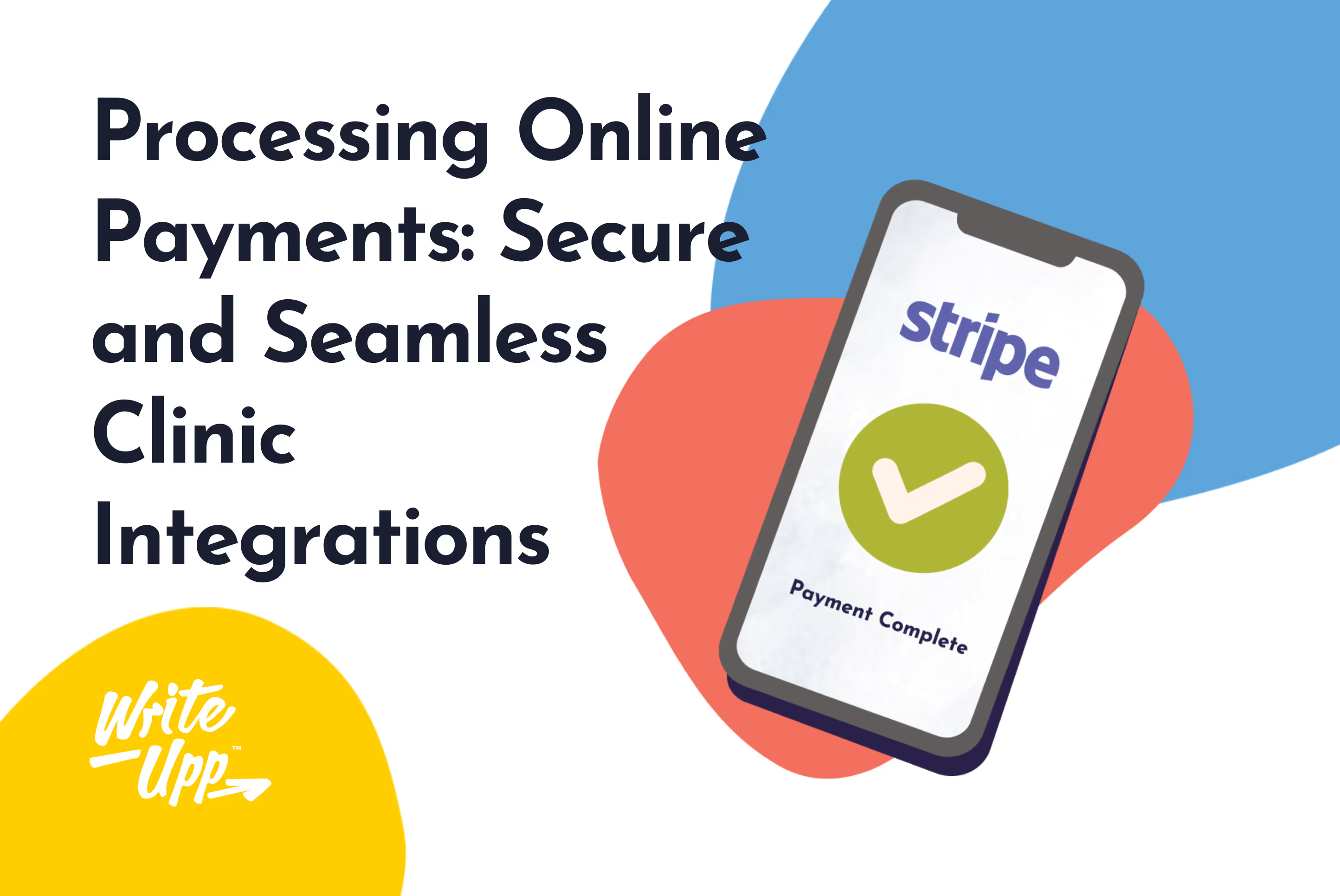Embarking on a career in counselling and psychotherapy is a deeply rewarding journey, filled with the potential to make a profound impact on the lives of others.
Whether you're just starting to explore this path or already immersed in the field, it's crucial to equip yourself with diverse skills to propel you towards success.
This article will delve into the essential skills that pave the way for a fulfilling and impactful career. From empathetic communication to clinical acumen and ethical considerations, these skills are the cornerstones that shape the lives you touch and the therapeutic relationships you build.
So, let's discover the key skills that will empower you to become an exceptional counsellor or psychotherapist.
Examples of Counsellor Skills
Counsellors possess a wide range of skills that enable them to effectively support and guide their clients through their personal and emotional struggles. Here are some examples of essential skills that counsellors utilise in their practice:
Active Listening
Active listening is a foundational skill for counsellors. It focuses entirely on the client's words, emotions, and nonverbal cues. By actively listening, counsellors demonstrate empathy, validate the client's experiences, and gain a deeper understanding of their concerns.
Effective Communication
Effective communication skills allow counsellors to convey their understanding, support, and guidance to clients clearly and compassionately. This includes using clear language, asking open-ended questions, and providing gentle feedback. Counsellors also aim to maintain a non-judgmental and respectful attitude throughout the therapeutic process.
Empathic Understanding
Empathy is an essential skill for counsellors, as it helps them connect with their clients on a deeper level. By putting themselves in their client's shoes, counsellors can better understand their feelings and experiences. This enables them to provide appropriate support and guidance tailored to the client's circumstances.
Problem-Solving and Critical Thinking
Counsellors must possess strong problem-solving and critical-thinking skills to help clients navigate their challenges. This involves analysing different perspectives, exploring potential solutions, and assisting clients in making informed decisions about their lives.
Cultural Competence
Cultural competency is crucial in counselling, allowing counsellors to work effectively with clients from diverse backgrounds. This skill involves understanding and respecting various cultural norms, values, and beliefs. By being culturally sensitive, counsellors can create a safe and inclusive space for all clients.
Emotional Regulation
Counselling can often involve intense emotions from both the client and the counsellor. Being able to regulate and manage one's own emotions is essential for counsellors to remain calm, composed, and objective during therapy sessions. This skill enables counsellors to create a supportive and non-reactive environment for their clients.
Boundaries and Ethics
Establishing and maintaining appropriate boundaries is imperative for counsellors. This includes maintaining confidentiality, managing professional relationships, and adhering to ethical guidelines. Counsellors must prioritise their clients' well-being and always act in their best interests.
Practice Management
Counsellors in private practice need a range of practice management skills. These include:
- Conducting client intake and assessments
- Managing appointments and time effectively
- Handling billing and finances
- Maintaining client records and confidentiality
- Implementing marketing strategies
- Developing business plans and goals
- Nurturing communication and interpersonal skills
- Ensuring ethical and legal compliance
Many of these elements can be streamlined by a good practice management system.
Practice streamlining involves identifying and optimising critical systems and procedures to enhance patient care, decrease administrative workload, and boost efficiency.
By streamlining their practice, counsellors and psychotherapists can automate tedious tasks, reduce errors, improve communication, and ultimately enhance patient experience and satisfaction.
How to Improve Your Counselling Skills
As a therapist, continually honing and improving your counselling skills is essential to providing the best possible care for your clients.
Here are some steps to enhance your skills and become an even more effective therapist:
Commit to Continuous Learning
The counselling field constantly evolves, with new research, therapeutic approaches, and techniques emerging regularly. Commit to engaging in continuous learning to stay at the cutting edge of the profession. Attend workshops, conferences, and seminars relevant to your field of practice.
Seek Supervision and Consultation
Seeking clinical supervision and consultation from experienced professionals can offer valuable advice, guidance, and feedback on your work. Through supervision, you can gain insight into your blind spots, identify areas for growth, and enhance your therapeutic interventions.
Develop Strong Self-Awareness
Self-reflection and self-awareness are crucial in counselling to ensure you are not projecting your biases, judgments, or personal issues onto your clients. Engage in regular self-reflection exercises, such as journaling or mindfulness practice, to foster greater self-awareness and cultivate empathy for your client's experiences.
Enhance Your Listening Skills
Active listening is a cornerstone of effective counselling. Train yourself to listen attentively to your client's words and their underlying emotions, non-verbal cues, and unspoken messages. Practice active listening techniques such as paraphrasing, reflecting, and clarifying to show your clients that you genuinely understand and empathise with their experiences.
Cultivate Empathy and Understanding
Cultivate empathy by putting yourself in your client's shoes, learning about different cultures and perspectives, and seeking to understand their unique experiences. Develop a therapeutic style that is warm, accepting, and free from bias, allowing your clients to feel heard, validated, and respected.
Enhance Your Communication Skills
Effective communication is vital to building a strong therapeutic relationship.
Continually work on improving your verbal and non-verbal communication skills. Pay attention to your tone of voice, body language, and facial expressions, ensuring they convey genuine care, empathy, and warmth. Practice clear and direct communication, avoiding jargon or complex language that may confuse or alienate your clients.
Engage in Self-Care
Taking care of your mental and emotional well-being is essential for a successful and fulfilling counselling career. Prioritise self-care practices that promote your overall well-being, such as exercise, relaxation techniques, hobbies, and maintaining a healthy work-life balance. When you care for yourself, you can show up fully present and energised for your clients, providing them with the support they deserve.
How to Become a Counsellor or Psychotherapist in the UK
If you have a passion for helping others navigate life's challenges and want to positively impact people's mental well-being, a career in counselling or psychotherapy might be a perfect fit for you.
Here's a step-by-step guide to help you get started on your journey:
Training and qualifications
While having a genuine passion for helping others is crucial, acquiring the necessary knowledge and skills through formal education and practical experience is equally important.
BACP recommends a three-stage route which can take three or four years. In addition to tuition, you'll sometimes be involved in independent study, placements, supervision, and personal therapy.
Stage 1: Introduction to Counselling
After taking an introductory course, you can decide if counselling is the right career. You will gain basic counselling skills and an overview of the training before fully committing. The classes usually last eight to twelve weeks and are offered at local further education (FE) colleges or adult education centres.
Stage 2: Certificate in counselling skills
Through this course, you will develop your counselling skills and gain a deeper understanding of counselling theories, ethics, and self-awareness. This training is also helpful if you advise or help people in your job. Part-time courses are usually offered at local colleges for one year.
Stage 3: Core practitioner training
This course will prepare you for a career as a counsellor or psychotherapist. Ideally, you should have a diploma or master's in counselling or psychotherapy as your core practitioner training. Courses like these are usually offered at colleges or universities that provide higher education.
Professional practitioner training should be based on internationally recognised standards of quality and competence, providing training in reflective, competent, and ethical practice. Additionally, you should have an integral, supervised placement of at least 100 hours to practice your skills within an organisation.
To become an accredited psychotherapist, you must obtain a postgraduate qualification that is recognised by one of three professional organisations:
- United Kingdom Council for Psychotherapy (UKCP)
- British Psychoanalytic Council (BPC)
- Association of Child Psychotherapists (ACP)
Building a successful career also requires a commitment to personal growth and self-reflection.
Continuously developing self-awareness, exploring personal biases, and engaging in regular supervision or consultation with experienced professionals can enhance clinical skills and ensure ethical practice.
Personal qualities
While education and training provide the foundation, the personal qualities and characteristics define an effective and compassionate therapist.
Here are some essential personal qualities that can contribute to a rewarding and impactful career in this field:
- Empathy
- Compassion
- Patience
- Open-mindedness
- Self-awareness
- Resilience
- Non-judgmental attitude
- Flexibility
- Ethical conduct and professional integrity
While these personal qualities are not exhaustive, they provide a foundation for practical therapeutic work.
Remember, personal qualities are an ongoing journey of growth and self-reflection that contribute to a fulfilling and rewarding career.
Supervision
Clinical supervision is a process in which a qualified and experienced professional provides guidance, mentorship, and support to therapists and counsellors in their practice.
The primary purpose of supervision is to ensure the delivery of safe, ethical, and effective therapeutic services to clients. Through supervision, you can reflect on your work, discuss challenging cases, and receive feedback on your clinical skills.
By gaining insight into your own practice, you can actively work towards becoming a more effective and capable practitioner.
It is worth noting that supervision is not a one-size-fits-all approach. Different types of supervision exist, such as individual, group, or peer supervision, each offering unique benefits. Additionally, therapists can seek supervision in specific areas or specialities they wish to develop further.
Personal therapy
While it may not be a requirement for all therapists, engaging in personal therapy can profoundly impact their professional growth, well-being, and effectiveness as practitioners.
Personal therapy involves therapists seeking their own therapy or counselling outside of their professional role. It provides therapists with a dedicated space to explore their thoughts, emotions, and personal issues.
Engaging in personal therapy can lead to several benefits for therapists. Firstly, it allows them to develop a deeper understanding of the therapeutic process by experiencing it firsthand. This experiential learning can enhance their empathy and compassion for their clients as they understand firsthand the vulnerability and growth within a therapeutic relationship.
Personal therapy is not a one-time event but rather an ongoing process. You can engage in personal therapy at different stages of your career, during transition or crisis, or as a lifelong practice for self-care and personal growth.
Membership of a professional body
Professional bodies such as the British Association for Counseling and Psychotherapy (BACP) provide mental health professionals with a wide range of benefits and support.
Firstly, being a member of a professional body ensures that counsellors and psychotherapists adhere to ethical guidelines and standards. These guidelines outline practitioners' professional and ethical responsibilities, ensuring they provide their clients with a safe and effective service. Adhering to these standards protects clients and helps uphold the reputation and integrity of the counselling profession.
Professional bodies also offer access to a wealth of resources and professional development opportunities. These can include online courses, webinars, conferences, and publications that keep members up-to-date with the latest advancements and research.
Continuous professional development is crucial for counsellors and psychotherapists to enhance their knowledge and skills, ultimately leading to more effective and evidence-based practice.
Professional bodies also often provide networking opportunities and communities for mental health professionals to connect with their peers. This can be particularly beneficial, especially for those who work in private practice or isolated settings.
Being a member of a professional body can also offer credibility and recognition within the field. Many professional bodies have rigorous membership criteria, requiring practitioners to meet specific educational qualifications and clinical training hours. By meeting these requirements and becoming a member, counsellors and psychotherapists can demonstrate their commitment to professional growth and development, enhancing their reputation and attracting potential clients or employment opportunities.
Get Your Practice Off to a Great Start with WriteUpp
Private practice software like WriteUpp is easy to use and affordable, and it lets you take client bookings online, reduce admin time, and improve the overall client experience.
Because your software streamlines your admin for you, you’ll have more time to concentrate on building your practice and taking care of your clients.
Basically, it’s there to save you time and worry!
You’ll spend less time looking for information, preparing notes, and writing client emails and text messages, which will give you more time to grow your practice.
With just a few clicks, you can access a ton of features, including:
- Taking bookings from your clients online, 24/7
- Eradicating repetitive & time-consuming tasks
- Accessing reporting to analyse your business income
- Eliminating paper
- Improving your client’s experience
- Simplifying your compliance with key regulations like GDPR
- Reducing the threat of virus transmission
You can grab us for a live chat if you have any questions about what an integrated practice management solution can do for you and your practice.
The button is just there in the bottom right corner of your screen.



Join over 50,000 clinicians that we've helped using WriteUpp
Start my free trial






